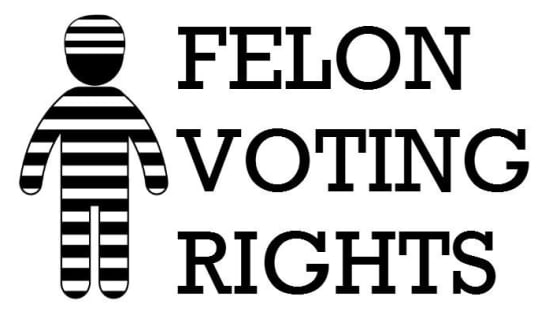
In State v. Boisselle, the WA Supreme Court held a police officer’s warrantless entry into the defendant’s duplex in this case violated article I, section 7 of the WA Constitution because their emergency aid function search was a unlawful pretext for a criminal investigation as the officers were suspicious, if not convinced, that a crime had taken place before entering the unit.
BACKGROUND FACTS
Law enforcement officers were dispatched to Mr. Boisselle’s home after two anonymous 911 calls reported that a man shot and possibly killed someone at the residence. While responding to the calls, the officers learned that the residence was related to an ongoing missing person/homicide investigation. Unable to determine whether someone was alive inside the home, the officers entered the residence and conducted a warrantless search, discovering evidence of a murder therein. Boisselle was arrested and jailed.
Boisselle moved to suppress the evidence, arguing that the officers’ warrantless search was unlawfully pretextual under article I, section 7 of the Washington Constitution. The trial court denied Boisselle’s motion, concluding that the officers’ search fell within the emergency aid function of the community caretaking exception to the warrant requirement. Following a jury trial, Boisselle was convicted of second degree murder and second degree unlawful possession of a firearm. The Court of Appeals affirmed his convictions.
COURT’S ANALYSIS & CONCLUSIONS
I. The Community Caretaking Exception
First, the WA Supreme Court agreed that the application of the community caretaking exception has become muddled, and took this opportunity to clarify the appropriate factors in determining whether an officer has exercised his or her emergency aid community caretaking function.
“The community caretaking exception is one such exception to the warrant requirement,” said the Court. “Under the community caretaking exception, law enforcement officers may make a limited invasion of constitutionally protected privacy rights when it is necessary for officers to perform their community caretaking functions.” The Court explained this exception recognizes that law enforcement officers are “jacks of all trades” and frequently engage in community caretaking functions that are unrelated to the detection and investigation of crime, including delivering emergency messages, giving directions, searching for lost children, assisting stranded motorists, and rendering first aid.
Next, the Court created the following multi-part test for evaluating whether an officer exercised his or her community caretaking function when conducting a warrantless search:
(1) Was the community caretaking exception used as a pretext for criminal investigation? If the court finds pretext, the analysis ends. If the court determines that the exception was not a pretext, the analysis continues is question is answered negatively, the analysis continues.
(2)(a) If the search fell within an officer’s general community caretaking function, such as the performance of a routine check on health or safety, the court must determine whether the search was “reasonable.” “Reasonableness” depends upon a balancing of a citizen’s privacy interest in freedom from police intrusion against the public’s interest in having police perform a community caretaking function.
(2)(b) If the search fell within an officer’s emergency aid function which arises from a police officer’s community caretaking responsibility to come to the aid of persons believed to be in danger of death or physical harm, the court, before determining whether the search is “reasonable,” must first determine whether: “(1) the officer subjectively believed that an emergency existed requiring that he or she provide immediate assistance to protect or preserve life or property, or to prevent serious injury, (2) a reasonable person in the same situation would similarly believe that there was a need for assistance, and (3) there was a reasonable basis to associate the need for assistance with the place searched.”
II. The Warrantless Search of Boisselle’s Home Was Pretextual.
The Court reasoned that an unlawful pretextual search occurs when occurs when officers rely on some legal authorization as a mere pretense to dispense with a warrant when the true reason for the seizure is not exempt from the warrant requirement. When determining whether a given search is pretextual, the court should consider the totality of the circumstances, including both the subjective intent of the officer as well as the objective reasonableness of the officer’s behavior.
“Viewing the totality of the circumstances, we are unconvinced that the officers’ search of Boisselle’s home was not a pretext for a criminal investigation.”
The Court reasoned that here, law enforcement’s involvement began because of two anonymous 911 calls reporting a crime. When the officers arrived at Boisselle’s duplex unit, they noticed a smell that could be attributed to a decomposing body, and they sought to confirm whether a crime had been committed or if a crime victim was inside. The officers were eventually able to see into the unit and saw signs of a struggle and missing carpet, which could be a sign that someone sought to cover up a crime scene.
“Taken together, these facts demonstrate that the officers were suspicious, if not convinced, that a crime had taken place,” said the Court. “Because of the officers significant suspicions, the search of Boisselle’s home was necessarily associated with the detection and investigation of criminal activity.”
Accordingly, the Court held the officers’ warrantless search did not fall under the emergency aid function of the community caretaking exception, and it violated article I, section 7 of the WA Constitution. Thus, the trial court erred in denying Boisselle’s motion to suppress. “We reverse the Court of Appeals and remand to the trial court for further proceedings,” said the Court.
My opinion? Grisly as the facts appear to be, the Court reached the right decision. Freedom from government intrusion lies at the very foundation of Western law and culture, and is one of our nation’s most cherished freedoms. That’s why we insist on police obtaining warrants, unless exigent circumstances dictates otherwise.
Please read my Search and Seizure Legal Guide and contact my office if you, a friend or family member were charges with a crime involving an unlawful pretextual search. Hiring competent defense counsel is the first and best step toward achieving justice.















